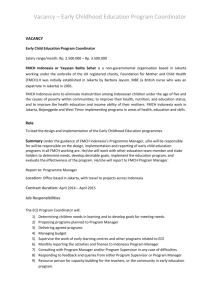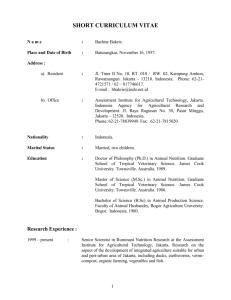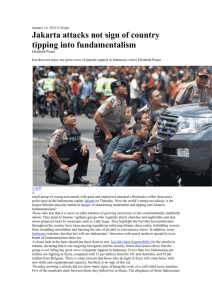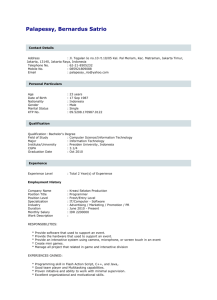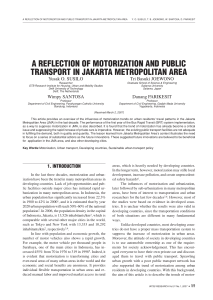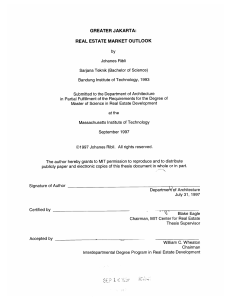Indonesia finance: Hot money heads for Jakarta stock exchange
advertisement
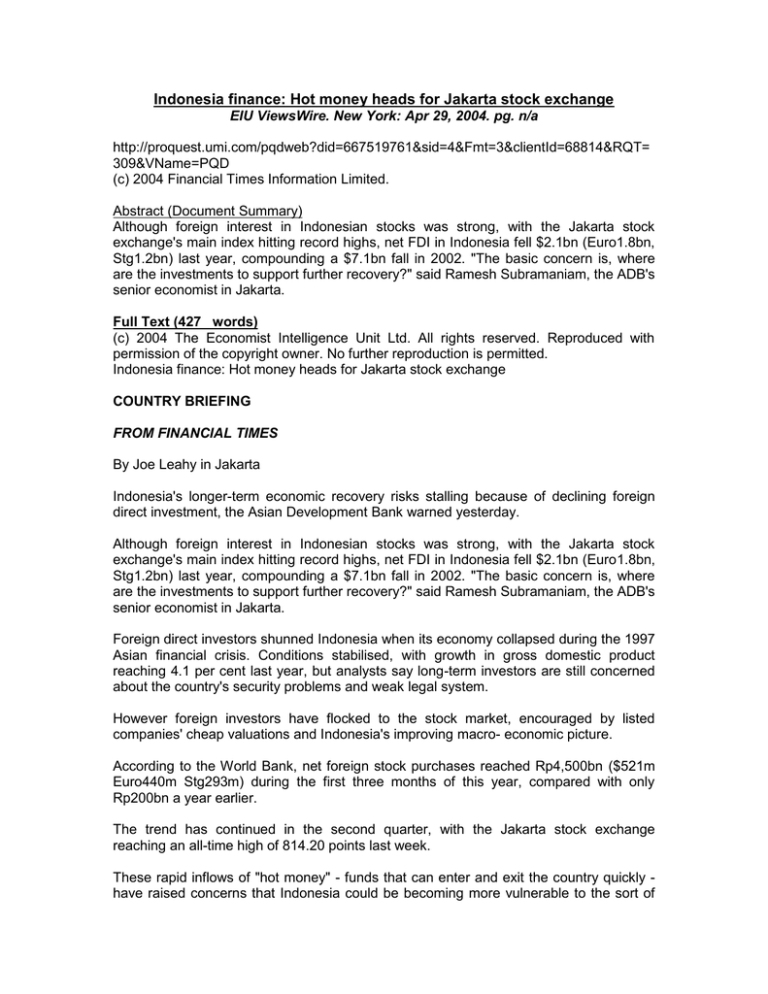
Indonesia finance: Hot money heads for Jakarta stock exchange EIU ViewsWire. New York: Apr 29, 2004. pg. n/a http://proquest.umi.com/pqdweb?did=667519761&sid=4&Fmt=3&clientId=68814&RQT= 309&VName=PQD (c) 2004 Financial Times Information Limited. Abstract (Document Summary) Although foreign interest in Indonesian stocks was strong, with the Jakarta stock exchange's main index hitting record highs, net FDI in Indonesia fell $2.1bn (Euro1.8bn, Stg1.2bn) last year, compounding a $7.1bn fall in 2002. "The basic concern is, where are the investments to support further recovery?" said Ramesh Subramaniam, the ADB's senior economist in Jakarta. Full Text (427 words) (c) 2004 The Economist Intelligence Unit Ltd. All rights reserved. Reproduced with permission of the copyright owner. No further reproduction is permitted. Indonesia finance: Hot money heads for Jakarta stock exchange COUNTRY BRIEFING FROM FINANCIAL TIMES By Joe Leahy in Jakarta Indonesia's longer-term economic recovery risks stalling because of declining foreign direct investment, the Asian Development Bank warned yesterday. Although foreign interest in Indonesian stocks was strong, with the Jakarta stock exchange's main index hitting record highs, net FDI in Indonesia fell $2.1bn (Euro1.8bn, Stg1.2bn) last year, compounding a $7.1bn fall in 2002. "The basic concern is, where are the investments to support further recovery?" said Ramesh Subramaniam, the ADB's senior economist in Jakarta. Foreign direct investors shunned Indonesia when its economy collapsed during the 1997 Asian financial crisis. Conditions stabilised, with growth in gross domestic product reaching 4.1 per cent last year, but analysts say long-term investors are still concerned about the country's security problems and weak legal system. However foreign investors have flocked to the stock market, encouraged by listed companies' cheap valuations and Indonesia's improving macro- economic picture. According to the World Bank, net foreign stock purchases reached Rp4,500bn ($521m Euro440m Stg293m) during the first three months of this year, compared with only Rp200bn a year earlier. The trend has continued in the second quarter, with the Jakarta stock exchange reaching an all-time high of 814.20 points last week. These rapid inflows of "hot money" - funds that can enter and exit the country quickly have raised concerns that Indonesia could be becoming more vulnerable to the sort of capital flight that occurred after the last crisis. Unlike in 1997, however, short-term foreign debt and foreign portfolio investment are small compared with Indonesia's foreign exchange reserves, economists say. Fauzi Ichsan, an economist with Standard Chartered, said hot money in 1997 was estimated at $37bn - $13.5bn in short-term debt securities and $23.5bn in foreign investment in stocks. Foreign exchange reserves at the time were $24bn. Last June, the most recent calculation available, hot money was $13bn compared with foreign exchange reserves at the time of $33.8bn. "Even if hot money has increased since then, it would not have increased substantially and it's still lower than foreign exchange reserves," Mr Ichsan said. Others argue that investment in Indonesia's economy may be stronger than official figures suggest. Rizal Prasetijo of JP Morgan in Jakarta said electricity demand had risen every year since 1998, possibly driven by a rapid growth in small and medium-size enterprises not fully reflected in headline GDP. "FDI is a lagging indicator," Mr Prasetijo said. "If you pay attention to FDI you miss the trick." .
